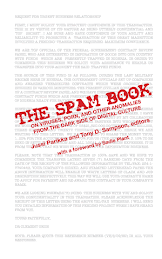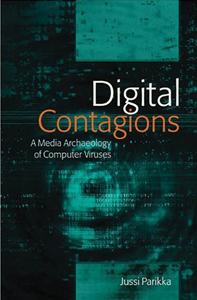The easiest target to ease your pain in the midst of funding cuts and the crisis of British universities is to blame the post 1992 universities - the ex-polytechnics. It seems that in the still very rigidly divided British class society, its the ex-polytechnics that are responsible for all the bad in the academic cultures of the Empire. It seems that the good old values in hard sciences and English (which still quite recently, less than 100 years ago was seen as a Mickey Mouse subject as well, but now celebrated as a corner stone of UK universities) are being threatened by such transdisciplinary newcomers as media studies. Indeed, I would be afraid too, as what the future of universities will need are new mixed perspectives, hybrid disciplines that are able to smoothly maneuver between critical theory, technology and culture and develop an understanding of the nature-culture (i.e. science-humanities) continuum.
Hence, it is joyful to read in the midst of polytechnic-bashing about 19th-century -- and British 19th-century specifically, when such institutions as the Royal Polytechnic Institution were not only celebrated back here but also envied across Europe. Such Polytechnics were indeed leading in various fields so crucial for the whole birth of technological, scientifically driven media culture that was emerging back then. Scientific progress, new forms of visualisation and spectacle, curiosities of useful and ephemeral kinds, were recognized to co-exist in a manner that indeed was a mix of popular attractions and scientific interest. As said, such polyverses were envied across Europe: "'When will Paris have its own Polytechnic Institution?' Abbé Moigno asked impatiently in his magazine Le Cosmos in August 1854" (Mannoni, The Art of Light and Shadow, p 268). (Moigno was btw. anyway a big fan of Anglo-American sciences, and did translations and introductions to developments at the other side of the Channel). The French had been at the forefront of developing inventions concerning light and its manipulation in terms of various projection and other apparatuses, but it seems that around mid 19th-century, Britain was able to provide a strong institutional support for development of such inventions on a wider scale too.
What to me is curious about such institutions that engaged with not so much in high abstract science but in experimental, hands-on and engineering approaches to new ideas and innovations is how they are, actually, different from Royal Science. Indeed, in this case I am using Royal a bit differently and more in the fashion that the philosophers Deleuze and Guattari used the concept. For the two French philosophers, Royal Science is one connected to the State as a power formation, and aims at stabilized formations, predictabilities, abstracted forms of ideal and imperial kinds. Naturally such classic institutions as Royal Polytechnics and such were created closely with State interests (science and technology was seen already then as the flagship for the Empire, not only know in the midst of the Digital Economy hype), but perhaps there is a potential to see a nomadic undercurrent in some of the interests of knowledge/creation in them as well, that is relevant for a consideration of contemporary institutions. This is indeed where the other concept, an alternative from Deleuze and Guattari kicks in; nomadic science that is an intellectual/pragmatic war machine for them. It is less interested in discovering organic, ideal and fixed essences than mapping out matter in its intensity, full of singularities that can take that active matter into surprising directions.
Nomadic science experiments with matter on hand; it teases out potentials, and directions for becoming/use/applicability to use a bit different terms in a manner that does stay close to the dirtyness of the world. This is where practical, experimental sciences, engineering and "applied perspectives" can actually carve out more about the world in its intensive materiality, than the royal sciences. It is for me an artistic perspective to science/technology; the much talked about field of sci-arts that can work taking aboard "the best of both worlds", so to speak. The cutting edge ideas in science and technology, but recontextualised in artistic methodologies and critical agendas. (And yes, not being only naive: I am completely aware how well embedded certain science-art collaborations are in economic wealth creation and even in military related developments and institutions).
Perhaps such perspectives have importance on various levels; to perspectives of media archaeology that are interested in nomadic ideas, practices and such assemblages of experimentation where invention happens in pragmatics. Not the inventions of for example media technologies in terms of their mathematics or logical implications, but in terms of experiments with materials, machines and such. A media archaeology of dirty machines, and trying out.
But it has importance also to ideas concerning contemporary institutions of knowledge/creation. Ex-polytechnics should perhaps more explicitly celebrate the engineering, arts, and applied sciences background, but not forgetting that theory is a practice too. This includes it as work of trying out, aberration, and dirty experimentation that works best in close proximity with the materiality of the world. Naturally its clear that there is a strong pull towards such Polyverses as the flagship of Royal interests; i.e. in various cases for example part of the new Digital Britain and the future of the Digital Economy. Yet, we should dig out minor passages, imperceptible places of research-creation and such where also new ideas, tinkering and experimentation without respect to theory-practice division can take place.
Wednesday, 28 April 2010
Subscribe to:
Post Comments (Atom)








No comments:
Post a Comment